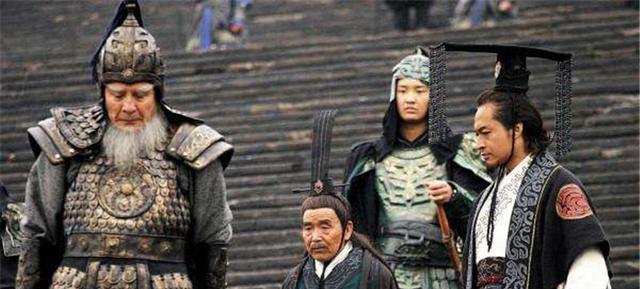In Chinese history, the Shang Dynasty's King Huan did not receive any honors and titles after self-immolation, and his glory was completely covered by the exploits of King Wu of Zhou. Perhaps the Ming Dynasty novelist Xu Zhonglin thought that such a historical ending was too uninteresting, so he wrote the novel "Fengshen Yanyi". In this mythological novel set at the end of the Shang Dynasty, the two sects of interpretation and interception finally launched a great war because of their different positions, and in the end, the interpretation of the teachings won, and most of the disciples of the interception did not have a good end.

However, the author may feel that the final ending of the interception is too bad, and does not want to write a historical mythological novel according to the end of the shang dynasty in a textbook manner, so in the final list of gods, we find that the king of Shang is also impressively in the list of gods, and was also named "Tianxi Star" by Jiang Ziya. This confuses many readers: Isn't King Shang the biggest villain in the book? Why was he canonized at the end?" What kind of position is TianxiXing?
This has to start from the end of the Shang King. After the Battle of Makino, King Wu of Zhou's army took the opportunity to march to the capital of the Shang Dynasty, and the King of Shang, seeing that he was powerless to resist, could only choose a fire to burn chaoge city in the star picking building. Later, when Jiang Ziya presided over the canonization of the gods, he specially arranged the position of "Tianxi Star" for the King of Shangyi, which was in charge of the affairs of marriage between the people, in layman's terms, that is, the King of Shangyi changed his career to a matchmaker. This makes people feel very strange, what is the inevitable relationship between the King of Shang and the folk at that time?
This has to start from the real performance of the Shang King in history. Although in both fiction and historical facts, the King of Shangyi is a notorious emperor, we all know that history is written by the victors, and Emperor Xin of Shangyi is in fact an exceptionally intelligent emperor. When King Wu of Zhou raised an army to attack the King of Shang, the King of Shang was mobilizing a large army to conquer the barbarians of Dongyi, which was picked up by King Wu of Zhou, and in order to publicize the justice of his crusade against the King of Shang, the monarchs of successive dynasties would whitewash their merits, which is not uncommon in the history of ancient and modern times.
In the process of the Shang King's conquest of the barbarians, the more advanced concept of marriage and funeral in the Central Plains also spread to the barbarian races in the southeast region, so Jiang Ziya named him "Tianxi Xing", on the one hand, because of the status and power of the King of Shang in the human world, on the other hand, it was also an official position and reward that was in line with his merits in the human world.